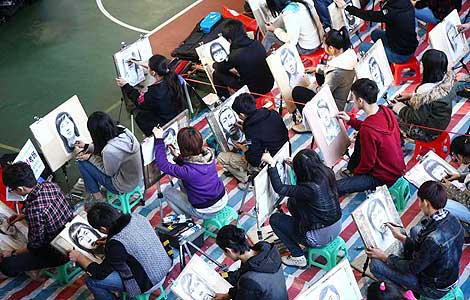At least 4 killed in clashes across Egypt
Updated: 2014-01-18 10:58
(Agencies)
|
||||||||
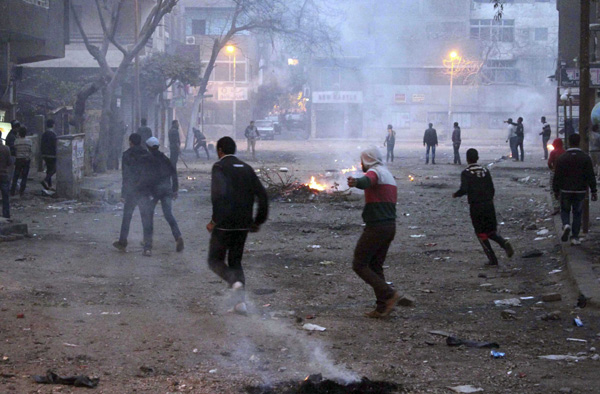 |
|
Smoke fills the area during clashes between supporters of Egypt's deposed president Mohamed Mursi and riot police in Cairo January 17, 2014. [Photo/Agencies] |
State authority collapsed in parts of the Sinai peninsula after the downfall of veteran president Hosni Mubarak in 2011, allowing hardline Islamist groups to expand into the vacuum.
Attacks on policemen and soldiers in the peninsula, which shares borders with the Palestinian Gaza Strip and Israel, intensified after the army ousted Egypt's Islamist president Mohamed Mursi last July amid mass protests against his rule.
Egyptian security forces have arrested thousands and killed hundreds of Brotherhood supporters since the overthrow of Mursi, Egypt's first democratically elected leader, and last month they declared the group a "terrorist organisation".
The Brotherhood, which says it is committed to peaceful activism, had unsuccessfully urged a boycott of the referendum on a new constitution.
State media, citing initial estimates, said around 95 percent of voters supported the new constitution, which would replace one approved under Mursi and would strengthen the state bodies that defied him: the army, the police and the judiciary.
In another sign of pressure on the Brotherhood, members of the engineers' union forced their head, identified as a Brotherhood supporter by state news portal Al-Ahram, to resign.
Unions have traditionally been seen as a gauge of Brotherhood support, in large part because the group was banned from politics during the Mubarak era. It lost its grip on another powerful professional union, representing doctors, in a vote last month.
- Referendum results steer Egypt's future roadmap
- Egypt voters overwhelmingly approve Constitution
- Egypt's leaders hope for stamp of legitimacy from referendum
- Egypt's General Sisi signals may run for president
- Egypt's Morsi in court for 2nd time over violence charges
- Egypt wants AU membership restored: FM
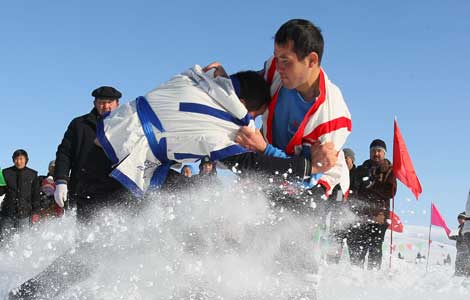
 Winter cultural festival opens in Xinjiang
Winter cultural festival opens in Xinjiang
 Premier vows to help startups
Premier vows to help startups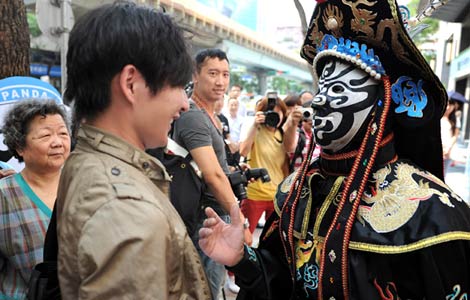
 Air travel to Taiwan continues to take off
Air travel to Taiwan continues to take off
 Panda cub in Washington makes her public debut
Panda cub in Washington makes her public debut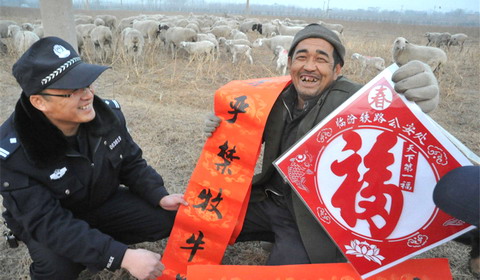
 Spring Festival preparations across China
Spring Festival preparations across China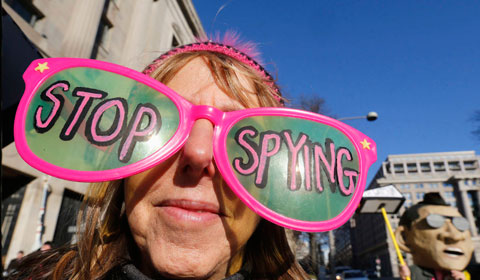
 Obama bans spying on leaders of US allies
Obama bans spying on leaders of US allies
 Bunnies on parade to celebrate 60 yrs of Playboy
Bunnies on parade to celebrate 60 yrs of Playboy
 Chipmunk fit to burst as it stuffs peanuts into mouth
Chipmunk fit to burst as it stuffs peanuts into mouth
Most Viewed
Editor's Picks

|

|

|
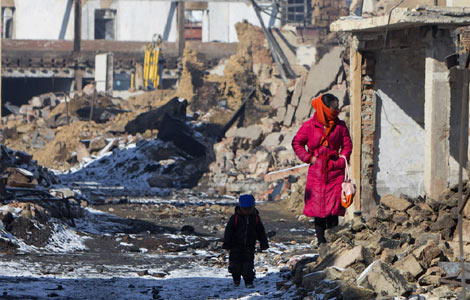
|

|

|
Today's Top News
Dropping 'no-war' pledge a part of Abe's strategy
Gang busted for illegal gender selection testing
China software to rival Android, iOS
White House fine-tunes Asia pivot to 'quench fire'
Xi writes to Chinese in German
Premier vows to help startups
Will China dominate the world?
Students tested on China knowledge
US Weekly

|

|


